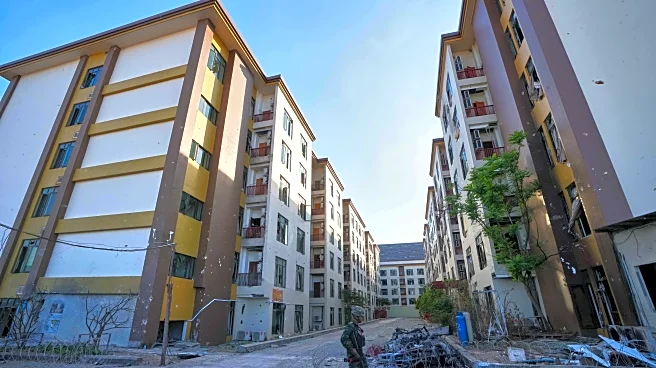What's Happening?
A recent study published in the Journal of Rehabilitation and Disability Studies highlights a significant gap in the rehabilitation process for trauma survivors. Conducted between December 2024 and September
2025, the research involved interviews with 27 senior rehabilitation experts from countries such as Canada, New Zealand, and the United Kingdom. These professionals work with patients recovering from various severe injuries, including car accidents and combat-related trauma. The study reveals that while patients may regain mobility, they often struggle with emotional distress, loss of identity, and challenges in reintegrating into society. The medical system typically views discharge as the end of care, but for patients, it marks the beginning of a difficult new chapter. Rehabilitation professionals express frustration over the lack of resources to support patients holistically, emphasizing the need for coordinated long-term care and community networks.
Why It's Important?
The findings of this study underscore the critical need for a more comprehensive approach to rehabilitation that goes beyond physical recovery. In the U.S., where trauma cases are prevalent due to various factors, including accidents and chronic illnesses, the study's insights could influence healthcare policies and practices. By addressing the emotional and social dimensions of recovery, healthcare providers can improve the quality of life for trauma survivors, potentially reducing long-term healthcare costs and enhancing societal reintegration. The study calls for a shift in focus from merely restoring physical function to fostering a sense of identity and purpose, which is essential for true recovery.
What's Next?
The study suggests that healthcare systems need to develop integrated rehabilitation models that include psychological support, occupational therapy, and family involvement. This approach could lead to better outcomes for trauma survivors, helping them regain a sense of self and purpose. Stakeholders in the healthcare industry, including policymakers and medical professionals, may need to collaborate to create frameworks that support holistic recovery. Additionally, there may be increased advocacy for funding and resources to establish community networks that assist patients in their post-rehabilitation journey.
Beyond the Headlines
The study highlights ethical considerations in the rehabilitation process, questioning the adequacy of current practices that focus primarily on physical recovery. It suggests a need for cultural shifts within the medical community to prioritize patient-centered care that addresses emotional and social well-being. Long-term, this could lead to changes in medical education and training, emphasizing the importance of holistic care approaches. The study also raises awareness about the societal impact of trauma, encouraging communities to support survivors in their reintegration efforts.












